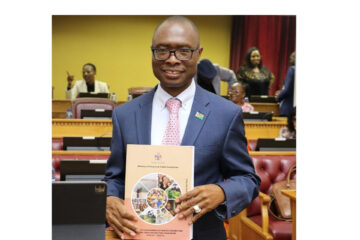CHAMWE KAIRA
Southern African Development Community (SADC) has been urged to strengthen regulators’ and stock exchanges’ expertise on climate finance, as well as green bonds, so they can play leadership roles.
“They have dual roles: implementing appropriate regulations, as well as to support market development,” a market report on the green bond market in the Southern Africa Development Committee (SADC) region prepared for FSD Africa and Committee of SADC Stock Exchanges (CoSSE).
The study covered the identification of green bond opportunities in the region, the barriers that hinder their uptake, and recommendations to overcome these. The study informed the development of the SADC Green Bond programme.
The report said in the SADC region in terms of green bonds, the emphasis is on the market development roles.
“Development partners can provide critical supports in this regard, by financing technical assistance programs which serve as platform for development of the country’s climate finance strategy and deployment of green bonds. It calls for support from international development partners.”
The report recommended for the establishment of national champions for designing and implementing market development measures for enhanced deployment of green bonds.
It said green bonds should be considered as an integral part of each country’s climate finance strategy as well as the capital market development agenda.
“Regional collaborations can facilitate peer-learning for not only product expertise but also on ideas for fostering enable environments, designing and implementing concrete policy measures, hands-on experience of leading stakeholders. There is no one-size fits all prescriptions for all SADC countries to improve deployment of green bonds.”
It was recommended that specific plans need to be developed in each country, reflecting the reality on the ground.
The report further said strong leadership by institutions with public mandates, such as capital market regulators and stock exchanges, and good coordination with relevant public and private-sector parties, including environment ministry and other relevant government entities, as well as key private-sector market participants, will be critical.
The report said banks must be incentivized to develop portfolios of eligible and bankable projects for green bonds.
It is estimated that the cumulative climate change adaptation and mitigation financing over the period
2020 – 2030 in the SADC countries is approximately US$200 billion; and this is well above what the government budget can support. Private capital needs to be mobilized, and policy makers and market participants globally see Green Bonds as a useful financial instrument in this regard. Green Bonds are still a relatively new instrument in the SADC countries.
It said green bonds should be considered in the context of the country’s overall climate finance and capital market development strategies. This is especially the case in countries with shallow capital markets.
“To deploy Green Bonds effectively, it calls for a deeper capital market; and on the other side, successful Green Bond issuance can help deepen the local capital market. Trying to stimulate deployment of Green Bonds without addressing the broader capital market deepening would face limitations in these counties.”
The report noted that many capital market regulators and stock exchanges are keen to play the role but lack necessary expertise; and seek for knowledge sharing support.
“Banks are also keen to embrace green bonds if they could develop suitable loan portfolios, and Development Finance Institution (DFIs) could consider financial intermediary loans to help them start developing such portfolios, perhaps with contingency for participating financial institutions to refinance such DFI loans subsequently with green bond issuance. For other countries than South Africa, without active involvement of international development partners with financial supports, deployment of green bonds is likely to struggle. “




